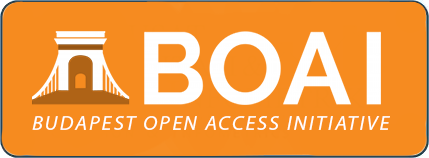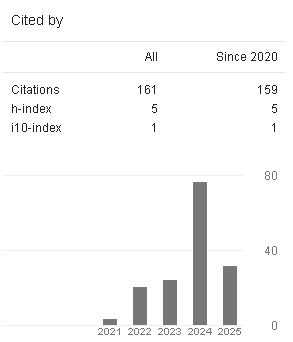Relationship Between Islamic Studies Students’ Knowledge of Fiqh Al-Seerah and Healthy Living Practices
Keywords:
Healthy Living, Fiqh Al-Seerah, Students’ LifestyleAbstract
While the saying ‘Health is wealth’ has long been acknowledged, its gravity has been particularly underscored following the global outbreak of the Coronavirus-19 disease (Covid-19), making health our utmost priority. Hence, understanding the way of life of the Prophet Muhammad PBUH, known in Islamic scholarship as Fiqh Al-Seerah, is necessary to learn about his healthful lifestyle practices. The purpose of this study was to ascertain the degree of knowledge regarding Fiqh Al-Seerah and the correlation between such knowledge and healthy living practices. Since the study was meant to represent the lifestyle patterns of the students, it was carried out using a sample of respondents from Sultan Ismail Petra International Islamic University College. Using a purposive sample of 49 respondents, the study used a quantitative methodology. The association between the two variables was examined using SPSS 20.0 and existing measures. For the variable “students’ knowledge of Fiqh Al-Seerah,” the mean is 5.240 with a standard deviation of 0.4258, while for the variable "healthy lifestyle,” the mean is 3.5814 with a standard deviation of 0.42027. The Pearson correlation between students’ knowledge of Fiqh Al-Seerah and healthy lifestyle is 0.444, and the p-value for this correlation is 0.003, indicating statistical significance. This highlights the importance of Islamic education, more specifically, the importance of Islamic history. This finding emphasizes the potential contribution of Islamic education to the promotion of holistic well-being since religious knowledge can inspire people to lead healthier lives.
Downloads
References
Al-Bukhari, M. I. (1997). Sahih al-Bukhari. Dar-us-Salam Publications.
Al-Buthi, M. S. R. (1999). Fiqh al-Sīrah: The jurisprudence of the Prophet's biography (F. A. Sahnoun, Trans.). Dar al-Fikr.
Al-Jurjani. (1983). at-Takrifat. Lubnan: Dar Al-Kuttub Al-Ilmiyyah.
Anthony, C. W., Anthony, W. A. (2001). The Art of Napping at Work: The No-cost, Natural Way to Increase Productivity and Satisfaction. United Kingdom: Souvenir.
Baharom Mohamad, Ali Suradin & Za’aba Helmi Khamisan. (2008). Peranan Pendidikan Islam Dan Pendidikan Moral Dalam Membina Sahsiah Pelajar Berkualiti. Persidangan Pembangunan Pelajar Peringkat Kebangsaan 2008, Universiti Teknologi Malaysia, 22-23 Oktober.
Beard, M. (2019). How to Read History. London, UK: Profile Books Ltd.
Bender, L. (2020, March). World Health Organization. Retrieved from https://www.who.int/docs/default-source/coronaviruse/key-messages-and-actions-for-covid-19-prevention-and-control-in-schools-march-2020.pdf?sfvrsn=baf81d52_4
Centers for Disease Control and Prevention. (2020). Mental Health, Substance Use, and Suicidal Ideation During the COVID-19 Pandemic — United States, June 24–30, 2020. Retrieved from https://www.cdc.gov/mmwr/volumes/69/wr/m m6932a1.htm
Fadli, S. N. I. A., Mokhtar, W. K. A. W., Amiruddin, E., Rashid, R. A., Idris, M. F. H. M., & Salleh, A. Z. (2019). Healthy Lifestyle of Prophet Muhammad S.A.W. International Journal of Academic Research in Business and Social Sciences, 9(11), 579–587.
García, H., & Miralles, F. (2016). Ikigai: The Japanese Secret to a Long and Happy Life. New York, NY: Penguin Books.
Ghazali, M. A. (2018). Fiqh Us Seerah: Understanding the Life of Prophet Muhammad. CreateSpace Independent Publishing Platform.
Ibn Hisham (Edited by Ibn Ishaq). (1955). The Life of Muhammad: A Translation of Ibn Ishaq's Sirat Rasul Allah (A. Guillaume, Trans.). Oxford University Press.
Jaapar, K. B. (2010). Prophet Muhammad's Daily Lifestyle and Its Scientific Indication: An Analytical Study of Al-Syama'il Al-Muhammadiyyah. IIUM.
Krejcie, R. V., & Morgan, D. W. (1970). Determining Sample Size for Research Activities. Educational and Psychological Measurement, 30(3), 607-610.
Lewis, H. (2007). Excellent Without A Soul: Does Liberal Education Have a Future? UK: Hachette.
Morris, R. (2018). How to Stop Doubting Your Greatness. New York, NY: HarperOne.
Suliman, N.A., Hamoudi, R., Hakami, R.M., Alhumud, A., & Al-Mazrou, A.M. (2020). Assessing the Impact of the COVID-19 Pandemic on Diet-Related Behaviors of Saudi Adults: A Cross-Sectional Study. Journal of Medical Internet Research, 22(10), e21732. DOI: 10.2196/21732
Nasr, S. H. (1989). Knowledge and the sacred. State University of New York Press.
Talib, N. H. F., Abd Halim, A. H., & Mohd Shafie, B. H. (2018). Tahap Pengetahuan Islam dan Penghayatan Akhlak Pelajar Semester 1, Satu Kajian di Politeknik Banting Selangor. Journal of Quran Sunnah Education & Special Needs, 2(2), 1-13. Retrieved from https://doi.org/10.33102/jqss.vol2no2.14
Tamuri, A. H. (2011). Penghayatan Islam Melalui Amalan Pengajaran dan Pembelajaran. Paper presented at Kongres Pendidikan Kebangsaan 2011, Hotel Dynasty Kuala Lumpur, Malaysia, December 4-7.
World Health Organization. Regional Office for Europe (1999). Healthy living: what is a healthy lifestyle? Copenhagen: WHO Regional Office for Europe. Retrieved from https://apps.who.int/iris/handle/10665/108180
World Health Organization. (2020). WHO Director-General's opening remarks at the media briefing on COVID-19. Retrieved from https://www.who.int/director-general/speeches/detail/who-director-general-s-opening-remarks-at-the-media-briefing-on-covid-19---29-april-2020
Zaidan, A. K. (1976). Al-Wajiz fi Usul Fiqh. Baghdad: Muassasah Qurtubah.
Zaman, R. K., Saleh, M. M., Ab Hamid, N. S., Mokhtar, K., & Jaafar, S. N. F. (2023). Pemetaan Modul Usrah Rabbani KIAS dan Kepentingannya dalam Pemantapan Jati Diri Siswa: The Mapping of Usrah Rabbani KIAS Module and Its Importance In Strengthening Students' Self-Identity. RABBANICA-Journal of Revealed Knowledge, 4(2), 51-71.
Downloads
Published
How to Cite
Issue
Section
License

This work is licensed under a Creative Commons Attribution-NonCommercial 4.0 International License.












